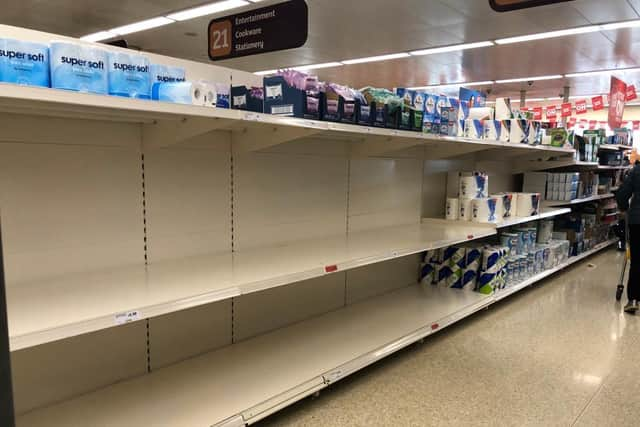Business as usual not an option - Professor Edward Sweeney


The arrival of full customs checks on January 1st following the ending of the temporary grace period, as well as the ongoing controversy regarding the Northern Ireland protocol, demonstrates that these issues remain difficult over a year after the UK Government “got Brexit done”.
The early days of the pandemic also put logistics into the spotlight. We can all remember the panic buying that took place ahead of the first lockdown in March 2020 when the ubiquitous toilet roll became emblematic of the challenges being faced by supply chains. Since then, the supply chains that deliver personal protective equipment (PPE) and Covid-19 vaccines to the healthcare frontline have been the subject of significant media attention. The latter are particularly interesting given the challenging ultra-cold storage requirements – sometimes as low as -80°C – of mRNA vaccines such Pfizer/BioNTech. The pandemic has also contributed to other freight transportation and logistics challenges, including the sharp increase in international shipping costs over the last year of so.
Advertisement
Hide AdAdvertisement
Hide AdIt is important to remember that all products reach the consumer through a chain of companies – the supply chain. These supply chains have become increasing international – and sometimes genuinely global – in complexion in recent years as a result of barriers to international trade reducing over recent decades. This process of business globalisation has made supply chains more vulnerable to international political and economic volatility. In parallel, markets have become more sophisticated and customers more discerning – expecting more and more in terms of quality and service – with intense competition putting downward pressure on prices.


Technology continues to develop at a rapid rate. Smaller firms in particular find it very difficult to stay abreast of these developments and there is evidence of a “digital divide” between large multinational firms and their smaller peers. These technological developments have facilitated the collection of large volumes of data about a wide variety of variables across supply chains. However, this so-called “big data” is of little value unless it can be transformed into something useful and usable from a supply chain decision making point of view. This gives rise to a strong focus on data analytics and visualisation techniques which draw heavily on often quite complex mathematics.
There is a well documented talent shortage in many parts of the supply chain. The HGV driver shortage has received significant media attention but skill shortages are evident in many other areas. The pandemic has created new challenges as a result of lockdown-linked volatility in demand patterns, as well as in product and service availability. The much vaunted “just-in-time” supply chain models with a strong focus on the elimination of waste are being challenged with a growing realisation that “just-in-case” stockholding might be more appropriate in certain scenarios to facilitate resilience.
Arguably the most significant supply chain challenge relates to the existential threat of climate change. Supply chain activities, including but not limited to freight transportation, do damage to the natural environment notably through greenhouse gas emissions. Developing more sustainable supply chains is now a key focus across all sectors. Heriot-Watt University is a leading player in research in the field of green logistics, particularly in the area of sustainable road freight. In short, “business-as-usual” is simply not an option – the development of more sustainable processes is now a vital strategic imperative.
The smart and sustainable supply chains of the future will be globally integrated – facilitated by advanced technology, environmentally sustainable and structurally resilient. They hold the key to continuing economic and societal wellbeing.
Professor Edward Sweeney, Head of Operations, Management & Logistics in the Edinburgh Business School at Heriot-Watt University
Comments
Want to join the conversation? Please or to comment on this article.